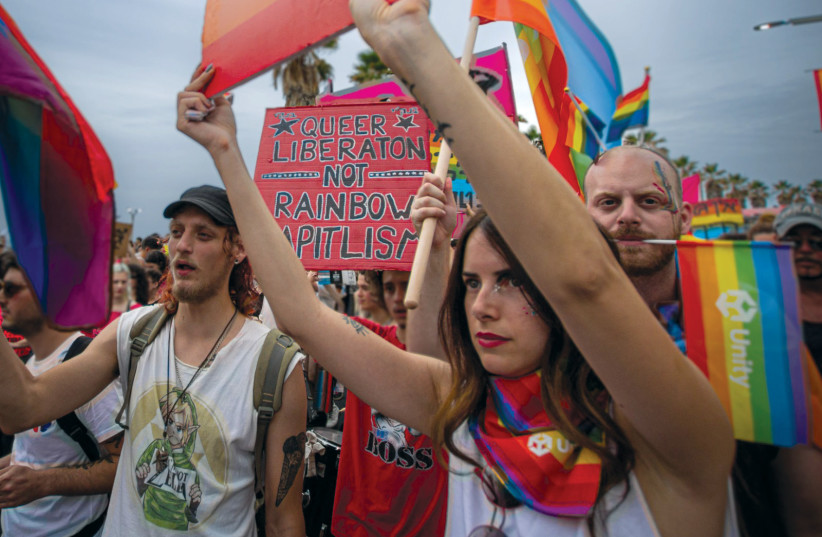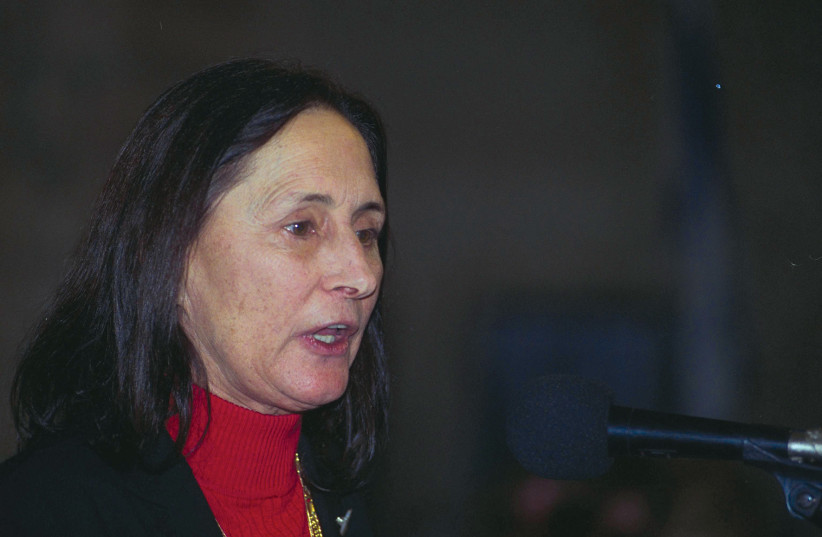Meanwhile, another intractable issue is squarely in the nation’s headlights now that extreme religious factions are a major component of the governing coalition: the plight of the Arab citizens and Palestinian people in a Jewish state that does not guarantee their equal right to resources. Thus, many of us have begun confronting a problem that we thought we had a right to ignore because once we had a nation of our own, we could do what almost every nation on Earth has done for millennia: oppress the weak and ignore the needy.
Being a Jewish, democratic state while controlling millions of Palestinians
Jews, who were promised a homeland by the British Empire in 1917 as a reward to Chaim Weizmann for his help to the Western powers in WW I, earned that right even more decisively after Hitler massacred millions of Jews in Europe during WW II. After two millennia of exile, we were home again, as noted in ancient texts. Those who had a problem with that, for example, the Arabs and Bedouin who had lived in the region since the time of their own prophet, were now automatically the enemy, to be vanquished. The land was old and small; the stones had many stories to tell, but water was scarce and malaria and swamps were rampant.
We, Israeli Jews, are told that we have an indelible right to the land. But do we have an inalienable right to wrest it from those who live on it as well? This is the dilemma we are facing as we protest from a democratic Jewish state that would adhere to Ben-Gurion’s Declaration of Independence from 1948, when we were a tiny nation of immigrants.
Yael Dayan (credit: Moshe Milner/GPO)
My father and his nuclear family came to British Mandate Palestine from Poland when he was a baby, in 1924. His father helped his relatives follow suit over the next decade. Some lived with his family in a small apartment in Tel Aviv until they earned enough money to set out on their own; others married and settled elsewhere in the Tel Aviv region. By contrast, my mother, her sister and parents arrived in 1934 from Germany; my grandmother saw the writing on the wall early. Nobody else in her family was persuaded that Hitler’s rise was not a temporary aberration, and they stayed behind. My grandparents gave up a comfortable life in Berlin for a simple one-bedroom flat in Tel Aviv and never looked back.
Independently, my parents joined the opposition to the mainstream leadership of the Labor Zionists, believing that the British must be ousted before Jews could live in an independent state of their own. They were aware of the English love affair with Arabs, trending back at least as far as Lawrence of Arabia. But the British were also fighting Hitler and his antisemitic allies, so my father volunteered for the British Army and saw action all over Europe. In 1945, he remained behind for a year to help Jewish refugees make their way to the British-promised land of the Jews. Meanwhile, my mother, as a member of the anti-establishment Irgun, declared war on the British in 1943 and trained people in the use of guns. For a year, as a result, the British had a price on her head; she did not sleep in the same place twice for fear of incarceration.
My parents met at my father’s birthday party when they were 21, between the end of the war and the end of the boat lift of European refugees. Both were devout Revisionists, with the entire works of Ze’ev Jabotinsky, the leader of the anti-establishment movement for Jewish statehood, on a shelf in the living room. But once my father returned from the European theater, he joined the mainstream Hagana. He fought in Israel’s War of Independence, as well as the Sinai Campaign. His survival with only a minor injury was pure luck, he would tell us again and again. My father hated war and never wanted to talk about it. What I remember most from my childhood was that while their family members were mostly right-wing stalwarts, my parents always had a pluralistic array of friends and loved arguing politics. I inherited that love of politics and debate.
But being Revisionists in the early days of the Jewish state was an impediment to my mother’s success at work. For example, she was asked to work at the Israeli embassy in Germany, for which she was eminently qualified. While my parents were vetted, my younger sister and I were placed in a boarding pre-kindergarten. But as soon as the regime discovered my mother’s Irgun activism, the job offer was rescinded. A few years later, after my aunt and uncle moved to Canada with their son, my parents decided to visit for a couple of years. Like many emigres, they stayed in Montreal for two decades.
Then came the war of 1967, and everything in the Middle East changed. The small Israeli army managed to overcome better-equipped armies of several Arab nations in only a week. Now tiny Israel almost doubled its size. It was intoxicating. People visited areas they had only read about in books: East Jerusalem, Hebron, Ramallah, Jericho, the Gaza Strip; the Sinai. Israelis who had been land-bound for two decades suddenly felt emancipated, free to roam over lands they never imagined they would ever visit. But first, land mines had to be detonated, and Jews and Arabs had to meet as people, not enemies.
I arrived in July 1967 as part of Les Petits Chanteurs de Montréal, a choir that came to participate in the Sixth World Zimriya, or choir festival. I fell in love with the land and, idealistically, wanted to be part of the peace process by which we would trade the newly acquired lands for a lasting peace with our neighbors. So the following year, I switched from McGill University to the Hebrew University in Jerusalem and returned alone to help set that reality in motion.
But I was naive, and the groups that wanted peace were not part of the emerging consensus. While I was sure that the Israeli government would barter the bloody land for a steady peace, the reality was that people from most of the Israeli political spectrum quickly grew to embrace the idea of a united Jerusalem and more places to hike. In addition, the small religious community that saw the captured land as a sign from God that Greater Israel was a reality, at last, set about building a solid infrastructure of settlements, religious schools, and youth groups in the captured territories. And they had help from people I never expected to lionize rather than criticize them.
One of my long-held mantras had been that if a million North American Jews would make aliyah and come live in Israel permanently, the country would become more pluralistic, democratic and equal for all. To my amazement, hundreds of thousands did come, but a great many joined the religious Right and the nationalistic messianic movements, while others encouraged this cause by donating vast sums of fiscal and political aid. With every new village, neighborhood, and road, with every religious school, yeshiva, and youth group, the dream of Arabs and Jews living peacefully together died, again and again.
With that died the Israeli “Left.” The kibbutz movement, once held up as an exemplar of communal living, is no longer an ideal to emulate. In addition, the once-glorious Labor Party of David Ben-Gurion managed to win only four seats in the most recent election, while the civil rights party that Shulamit Aloni founded in the 1970s did not elect a single member in 2022 for the first time. The era of Israel’s socialist creation has come to an end. So, what now?
Israel is split between the global aspirations of its educated class, made up of Arabs and Jews, secular and religious, East and West, and the local aspirations of those on the periphery of the 21st century, most of them poorly educated people of many strands, beliefs and backgrounds who are stuck in the folklore of their inner circles. It is the universal split of urban and rural, progressive and conservative, conversationalists and sloganeers. Of course, this is a very crude division that has flaws to debate.
My parents were conservative. We had many political arguments. But they traveled widely, had many different friends, read a lot, and were very progressive on social issues. Indeed, when my partner and I came out publicly on prime time Israeli TV in 1992 – the first lesbian couple ever to do so – my mother was on air with us, singing the praises of pluralism. She could see no reason not to accept one’s children for who they were. The following year, she spoke for parents like her at the Knesset, during a session on same-sex issues convened by MK Yael Dayan, Moshe Dayan’s spirited daughter. One of the gay speakers that day, Uzi Even, became an MK in his own right as the first gay elected official in Israel. Today Israel has a gay Knesset Speaker, Amir Ohana, who traveled recently with his partner to Morocco.
Nobody can predict the outcome of the current struggle between the Revisionist, nationalistic right and the revisioning, pluralistic center; between those who think locally about the next war, perhaps the promised Armageddon that will usher in the Greater Israel of their fevered dreams, and the global secular Jews who want to be at peace with their neighbors if the Arabs would agree to promise not to slaughter them.
Before his death over 30 years ago, my father and I talked at length about Israeli politics, as usual. But this time, I asked him whether he could imagine a situation where Arabs and Jews could live side by side in agreed borders that respected both Jews’ and Palestinians’ right to equality of life, liberty, and legal protection. In short, the basic elements of Israel’s Declaration of Independence, signed in 1948.
My father agreed that Israeli Jews could not keep millions of Palestinians forever under military occupation as Arabs were held until 1966. (According to Yotam Berger in Haaretz four years ago, “Israel lifted its military rule over the state’s Arab community in 1966 only after ascertaining that its members could not return to the villages they had fled or been expelled from, according to newly declassified archival documents.”)
If my Revisionist father could agree on this matter, surely those protesting for the values in the Declaration of Independence can revise their thinking to embrace peace and coexistence. Many Arabs are going through the same trajectory. We must ensure that those on the margins in Israel and those living in the Palestinian territories get access to quality education, nourishing food, water, and healthcare, and an environment for meeting and greeting their neighbors in secure, agreed-upon borders.
When I came to Israel with the choir in 1967, one of my choir-mates befriended a Palestinian living in east Jerusalem. I went with her to meet his family and share a meal. We hiked atop the wall surrounding the Old City. It was heady, friendly, and calm. We were people from three different countries, meeting as young folks with the future ahead of us, wishing to embrace peace and understanding. This is my dream for our children’s generation. ■
Dr. Liora Moriel, the Negev reporter from 1982-1987 for The Jerusalem Post, was a lecturer at the University of Maryland.












